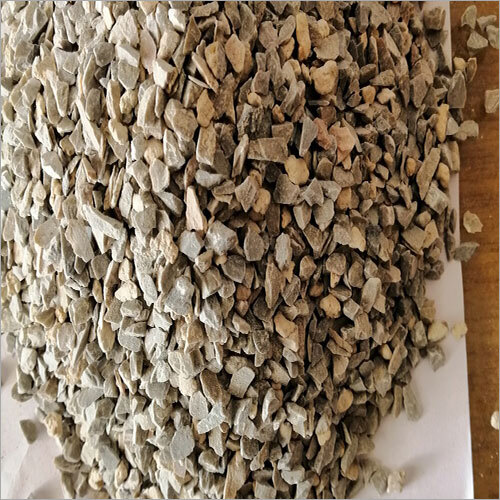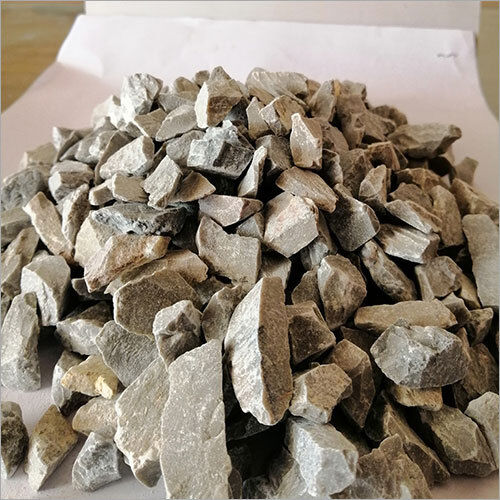
Lime Stone 06MM
Product Details:
- Product Type Lime Stone
- Material Stone
- Type Stone
- Application Construction
- Size 06MM
- Click to view more
X
Lime Stone 06MM Price And Quantity
- 10 Kilograms
Lime Stone 06MM Product Specifications
- Construction
- 06MM
- Lime Stone
- Stone
- Stone
Lime Stone 06MM Trade Information
- 5000 Kilograms Per Month
- 7 Days
Product Description
Limestone is a sedimentary rock composed primarily of calcium carbonate (CaCO3) in the form of the mineral calcite. It often contains variable amounts of other minerals such as quartz, clay minerals, and iron oxides. Limestone forms from the accumulation of marine organisms such as coral, shells, algae, and other calcium-rich organisms over millions of years.
Lime Stone Applications:
1. Construction Materials: Limestone is widely used as a building material in construction projects. It is utilized in the form of blocks, tiles, and slabs for various architectural purposes such as:
- Flooring
- Wall cladding
- Facades
- Columns and balusters
- Countertops
- Decorative elements
2. Cement Production: Limestone is a crucial ingredient in the manufacturing of cement. When heated to high temperatures along with other materials such as clay, it forms clinker. The ground clinker is then mixed with gypsum to produce cement, which is used in the construction industry for making concrete.
3. Agricultural Lime: Limestone is used in agriculture to neutralize acidic soils and provide essential nutrients to crops. Agricultural lime, also known as aglime, is applied to fields to raise the pH level of acidic soils, improve soil structure, and enhance the availability of nutrients such as calcium and magnesium.
4. Flue Gas Desulfurization (FGD): Limestone is used in the flue gas desulfurization process to remove sulfur dioxide (SO2) from exhaust gases emitted by power plants and industrial facilities. Limestone slurry is sprayed into the flue gas stream, where it reacts with sulfur dioxide to form calcium sulfite and calcium sulfate, which can be removed as solid byproducts.
5. Water Treatment: Limestone is used in water treatment processes to adjust the pH level of acidic water and remove impurities. It can be used in the form of crushed limestone or limestone chips in water filtration systems to remove contaminants and improve water quality.
6. Industrial Fillers: Limestone is used as a filler material in various industrial applications such as:
- Paints and coatings
- Plastics
- Rubber
- Adhesives and sealants
- Paper and pulp
7. Chemical Industry: Limestone is used in the production of lime, which has numerous industrial applications such as:
- Manufacturing of steel and other metals
- Production of calcium carbide
- Neutralization of acidic wastewater
- Soil stabilization in construction projects
8. Landscaping and Decorative Uses: Limestone is often used in landscaping and decorative applications due to its natural beauty and durability. It can be used for:
- Pathways and walkways
- Retaining walls
- Garden borders and edging
- Outdoor fireplace surrounds
- Sculptures and garden ornaments
Lime Stone FAQ:
Q. What are the different types of limestone?
Ans: Limestone can be classified into several types based on factors such as composition, texture, and formation process. Some common types include:
- Chalk: Soft, fine-grained limestone composed mainly of microscopic shells.
- Coquina: Limestone formed from the cementation of shell fragments.
- Travertine: Porous limestone deposited by mineral springs, often used in construction and decorative applications.
- Fossiliferous limestone: Limestone containing visible fossil remains of marine organisms.
- Oolitic limestone: Limestone composed of small spherical grains called ooids.
Q. What are the main uses of limestone?
Ans: Limestone has numerous applications across various industries, including:
- Construction materials such as building stone, aggregates, and cement.
- Agriculture as a soil conditioner and nutrient supplement.
- Environmental applications such as flue gas desulfurization and water treatment.
- Industrial uses including fillers in paints, plastics, and rubber, as well as in the chemical industry for producing lime and calcium-based compounds.
Q. How is limestone formed?
Ans: Limestone forms primarily in marine environments where calcium carbonate-rich organisms accumulate over time. These organic remains undergo compaction and cementation to form solid rock. Other processes such as precipitation from mineral-rich waters can also contribute to limestone formation.
Q. Is limestone sustainable?
Ans: Limestone is considered a sustainable material due to its abundance in nature and its ability to be recycled and reused. However, like any resource, sustainable extraction and management practices are necessary to minimize environmental impacts such as habitat disruption and water pollution.
Q. Is limestone resistant to weathering?
Ans: While limestone is durable and commonly used in construction, it is susceptible to weathering processes such as erosion, dissolution, and chemical weathering. Factors such as climate, exposure to acidic substances, and the presence of water can affect the rate of weathering of limestone.
Q. Can limestone be recycled?
Ans: Yes, limestone can be crushed and recycled for various purposes such as road construction, aggregate production, and soil stabilization. Recycling limestone helps conserve natural resources and reduces the environmental impact of quarrying new material.
Q. Is limestone safe for use in food and drinking water?
Ans: Limestone is generally considered safe for use in food and drinking water applications. However, it's essential to ensure that the limestone used meets relevant safety and quality standards to prevent contamination and ensure consumer health and safety.
Other Products in 'Lime Stone' category
Get in touch with us










